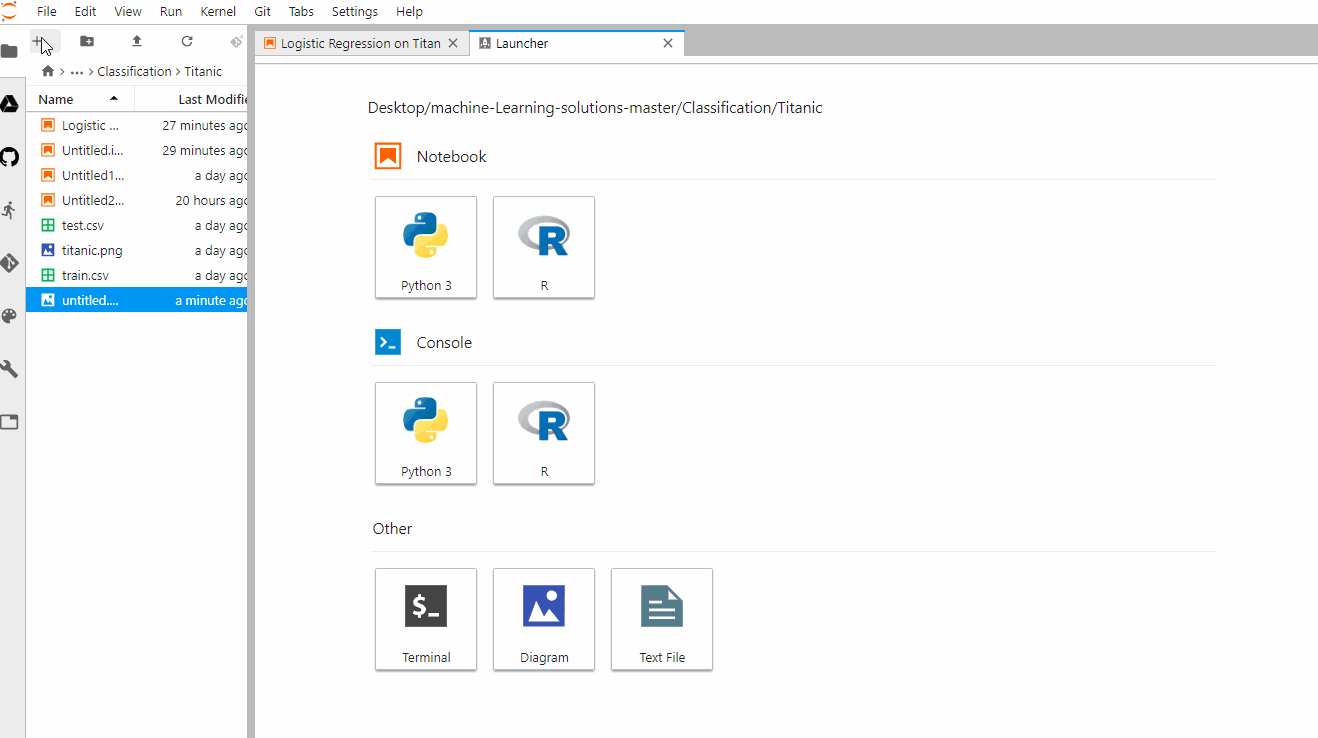

We recommend publishing prebuilt extensions in Python packages for user convenience. Since prebuilt extensions can be installed at the per-user level, the per-environment level, or the system level, each user can have their own separate set of prebuilt extensions that are loaded dynamically in their browser on top of the system-wide JupyterLab.
JUPYTERLAB EXTENSION INSTALL
On such systems, only the system administrator has permissions to rebuild JupyterLab and install source extensions. If a source extension and a prebuilt extension with the same name are installed in JupyterLab, the prebuilt extension takes precedence.īecause prebuilt extensions do not require a JupyterLab rebuild, they have a distinct advantage in multiuser systems where JupyterLab is installed at the system level. In some cases, system administrators may even choose to install a prebuilt extension by directly copying the prebuilt bundle to an appropriate directory, circumventing the need to create a Python package. Installing a prebuilt extensions does not require Node.js.Īn extension can be published both as a source extension on NPM and as a prebuilt extension (e.g., published as a Python package). In this case, the extension developer uses tools provided by JupyterLab to compile a source extension into a JavaScript bundle that includes the non-JupyterLab JavaScript dependencies, then distributes the resulting bundle in, for example, a Python pip or conda package.
JUPYTERLAB EXTENSION CODE
See Deduplication of Dependencies for the technical reasons for rebuilding JupyterLab when a source extension is installed.Ī prebuilt extension (new in JupyterLab 3.0) distributes a bundle of JavaScript code prebuilt from a source extension that can be loaded into JupyterLab without rebuilding JupyterLab. However, the total size of the JupyterLab code delivered to a user’s browser may be reduced compared to using prebuilt extensions. This rebuilding step requires Node.js and may take a lot of time and memory, so some users may not be able to install a source extension. Installing a source extension requires a user to rebuild JupyterLab. Extensions can be distributed in two ways:Ī source extension is a JavaScript (npm) package that exports one or more plugins. An extension is a package that contains one or more JupyterLab plugins.

Here is some autogenerated API documentation for JupyterLab and Lumino packages:Ī JupyterLab plugin is the basic unit of extensibility in JupyterLab. Mimerender-cookiecutter-ts: Create a MIME Renderer JupyterLab extension in TypeScript We provide several cookiecutters to create JupyterLab extensions:Įxtension-cookiecutter-ts: Create a JupyterLab extension in TypeScriptĮxtension-cookiecutter-js: Create a JupyterLab extension in JavaScript
JUPYTERLAB EXTENSION HOW TO
The JupyterLab Extension Examples Repository: A short tutorial series to learn how to develop extensions for JupyterLab by example.Ĭommon Extension Points: A list of the most common JupyterLab extension points.Īnother common pattern for extending JupyterLab document widgets with application plugins is covered in Documents. We provide a set of guides to get started writing extensions for JupyterLab:Įxtension Tutorial: A tutorial to learn how to make a simple JupyterLab extension. Other resources ¶īefore we get started, here are some resources for hands-on practice or more in-depth reference documentation. We will discuss how to write a plugin, then how to package together a set of plugins into a JupyterLab extension. Extensions even provide more fundamental parts of the application, such as the menu system, status bar, and the underlying communication mechanism with the server.Ī JupyterLab extension is a package that contains a number of JupyterLab plugins. JupyterLab extensions provide nearly every function in JupyterLab, including notebooks, document editors and viewers, code consoles, terminals, themes, the file browser, contextual help system, debugger, and settings editor. The JupyterLab application is comprised of a core application object and a set of extensions.


 0 kommentar(er)
0 kommentar(er)
